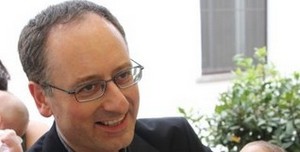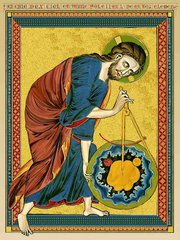 La Civiltà Cattolica, THE prestigious journal of opinion in Italy, and perhaps in very many ecclesial circles, has new leadership in Jesuit Father Antonio Spadaro. La Civiltà Cattolica has been at the service of the Church 162 years.
La Civiltà Cattolica, THE prestigious journal of opinion in Italy, and perhaps in very many ecclesial circles, has new leadership in Jesuit Father Antonio Spadaro. La Civiltà Cattolica has been at the service of the Church 162 years.
Father Antonio, 45, takes the helm from Father GianPaolo Salvini, 75, who’s been the head of La Civiltà Cattolica since 1985, an apostolate of the Italian Jesuits in Rome.
While not an official organ of communication of the Holy See, La Civiltà Cattolica is reviewed by a ranking –though competent– official of the Secretariat of State. It is said that the Papal Palace, that is, the Pope himself, reviewed the pre-publicaiton draft of the journal; Pope Paul VI changed the process.
The new director, Father Antonio, also the superior of the House of Writers (near to the Porta Pinciana) is trained in literary criticism and has been at the journal for a time since 1994. He’s from Messina and was ordained in 1996. All of his training was in Italy but he completed his Jesuit formation, tertianship, in Ohio. He earned a doctorate from the Gregorian University under the direction of the Australian Jesuit Gerald O’Collins. The new director has published some 15 books and he’s interested in the new social communications.
Don Antonio hosts two blogs: “Antonio Spadaro” and “Cyberteologia.”
He got a difficult road ahead of him: bringing La Civiltà Cattolica further into the new millennium with the use of English, social media and greater visibility. The voice of La Civiltà Cattolica needs to be heard. A new broom sweeps clean.
May God grant Father Antonio many and rich blessings as he begins his new ministry.


